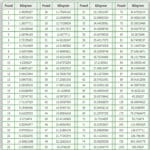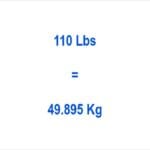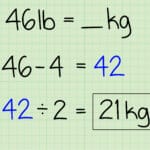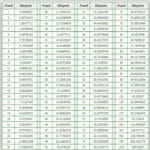Unlock your LSAT potential! This comprehensive guide breaks down how to calculate your LSAT score, from raw numbers to scaled scores and percentiles. We’ll cover everything you need to know, including official conversion charts, the role of LSAC, and how your score impacts your law school applications. [https://www.lolaapp.com/]
Deciphering Your LSAT Score
Understanding your LSAT score is crucial for your law school journey. It’s more than just a number; it’s a key factor in admissions decisions. This section clarifies the three main types of LSAT scores: raw, scaled, and percentile.
The Three Pillars: Raw, Scaled, and Percentile
- Raw Score: This is simply the number of questions you answered correctly. No points are deducted for wrong answers, so guessing is encouraged if you’re unsure.
- Scaled Score: This is the score law schools use, ranging from 120 to 180. It’s derived from your raw score but adjusted based on the difficulty of the specific LSAT administration. This ensures fairness across different test dates.
- Percentile Rank: This tells you how your score compares to other test-takers. It shows the percentage of test-takers who scored lower than you, providing valuable context for your performance. [https://www.lolaapp.com/]
Calculating Your LSAT Score: A Step-by-Step Guide
Now, let’s get practical. Follow these steps to calculate your LSAT score:
- Count Correct Answers: Tally the number of questions you answered correctly on your practice test or actual LSAT. Double-check for accuracy. This is your raw score.
- Find the Official LSAC Conversion Chart: This is critical. Each LSAT administration has a unique conversion chart. Locate the chart specific to your test date on the official LSAC website. [https://www.lolaapp.com/] Don’t rely solely on unofficial sources.
- Convert Your Raw Score: Locate your raw score on the chart. The corresponding number in the scaled score column is your official LSAT score.
- Determine Your Percentile: The same chart typically displays percentile information. Find your scaled score and its corresponding percentile rank.
LSAT Score Converters and Resources
While official LSAC resources are paramount, other tools can be helpful.
Official vs. Unofficial Resources
- LSAC: The official source for accurate and up-to-date information. Prioritize their conversion charts and resources.
- Third-Party Tools: Companies like Kaplan, 7Sage, Blueprint, and LSAT Demon offer score calculators and prep materials. These can be useful supplements, but always verify information against official LSAC data. [https://www.lolaapp.com/]
- PrepTests: Consistent practice with real LSAT PrepTests is invaluable for familiarizing yourself with the test format and tracking your progress. [https://www.lolaapp.com/]
The Significance of Your LSAT Score
Your LSAT score significantly impacts your law school applications. A higher score can improve your chances of admission to your target schools. Understanding your percentile helps assess your competitiveness and tailor your application strategy.
Beyond the Number: Understanding Your Score’s Impact
- Law School Admissions: Your LSAT score is a key factor in admissions decisions, alongside your GPA, recommendations, and personal statement.
- Competitive Advantage: A strong LSAT score can give you a competitive edge, opening doors to a wider range of law school options.
- Scholarship Opportunities: High LSAT scores often increase your chances of receiving merit-based scholarships. [https://www.lolaapp.com/]
Debunking LSAT Score Myths
Let’s dispel some common misconceptions about LSAT scoring:
- Myth 1: All Questions are Weighted Equally: While each correct answer contributes to your raw score, questions vary in difficulty. The scaling process accounts for these differences.
- Myth 2: Past Performance Guarantees Future Results: While previous scores can inform your preparation, they don’t guarantee future outcomes. Consistent practice and adaptability are key.
The Mystery of Barack Obama’s LSAT Score
Barack Obama’s exact LSAT score remains publicly undisclosed. While estimates place it in the high 160s to low 170s (94th-98th percentile), the precise number is unknown. His acceptance into Harvard Law School, where the median LSAT score is typically around 174, suggests a strong performance. [https://www.lolaapp.com/]
What Does 80% Correct on the LSAT Mean?
An 80% raw score (approximately 80 to 83 correct answers) typically translates to a scaled score in the mid-160s, which is competitive for many law schools. However, focus on the scaled score and percentile, as these are the metrics law schools use. [https://www.lolaapp.com/]
Important Points to Remember
- Three Scores Matter: Raw, scaled, and percentile.
- Official LSAC Conversion Charts: Use the chart for your specific test date.
- LSAT-Flex Scoring: Use the specific LSAT-Flex conversion chart if you took that version of the test.
- Holistic Application: LSAT score is one piece of the puzzle. Your GPA, recommendations, personal essay, and experiences also matter.
Remember, your LSAT score is a significant factor but not the sole determinant of your law school success. Consistent preparation, strategic planning, and a comprehensive understanding of the scoring process will empower you on your path to law school. Delve into the fragrant world of cardamom and cloves ottawa or explore the science behind a cathode’s counterpart in a battery for a change of pace. [https://www.lolaapp.com/]
- Georgia Platform: A Southern Strategy, 1850s - March 31, 2025
- How many weeks is 40 days: Quick Conversion Guide for Accurate Results - March 31, 2025
- How many feet is 300 meters? 984 Feet: Understand Length Conversions Easily - March 31, 2025
















